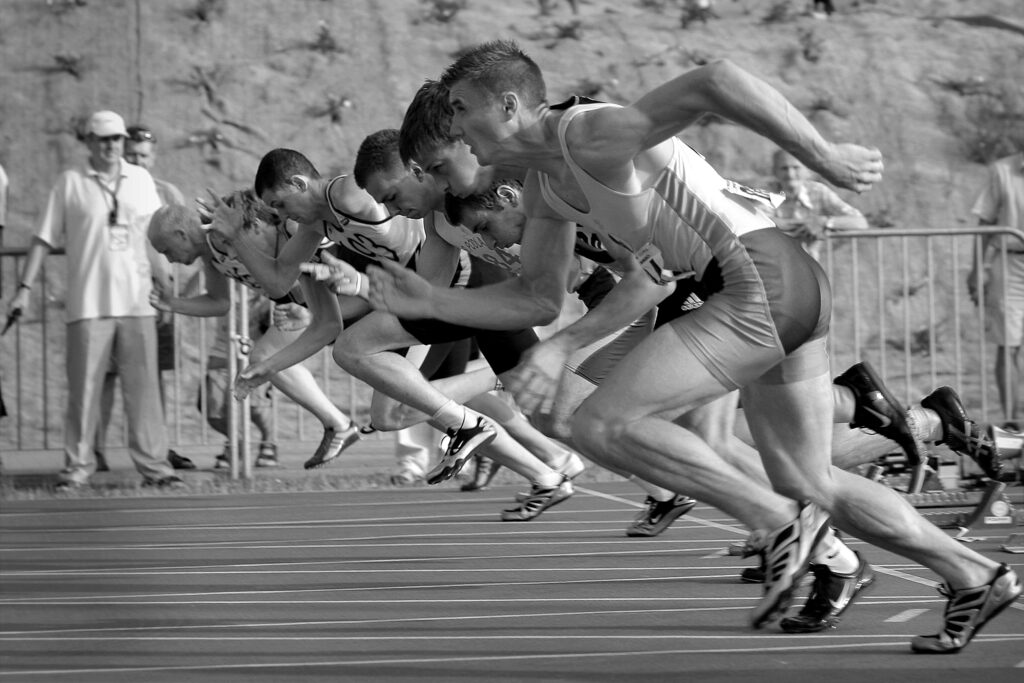Navigating the world of sports picking involves more than just analyzing statistics and trends, it requires an understanding of the human psyche and its impact on decision-making. Cognitive biases, deeply ingrained in our thought processes, can significantly influence the choices we make, often negatively impacting decisions made.
From confirmation bias to the gambler’s fallacy, these biases can cloud judgment and distort our perceptions of reality, especially in the realm of fan-funded sports picking. However, recognizing and addressing these biases is just a fraction of the mental hurdles faced with sports picking. Emotions also play a crucial role in decision-making, acting as either a valuable asset or a liability.
Trusting your intuition can sometimes yield positive results, but unchecked emotions can lead to reckless decisions and financial losses. To navigate these challenges effectively, pickers can employ rational decision-making models and integrate psychological principles such as heuristics. By doing so, they can enhance their predictive accuracy and make more informed choices in the dynamic world of sports picking.
Setting the stage for exploring the intricate interplay between cognitive biases, emotions, and decision-making processes, this article offers insights and strategies to empower sports enthusiasts on their journey through the realm of fan-funded sports picking.

Cognitive bias, according to Britanica.com, is the “systematic errors in the way individuals reason about the world due to subjective perception of reality.” In other words, it is the logical fallacies that people come to believe and let affect the decisions they are making.
Whether created from a lack of knowledge or the filtering of important information that all people do, it can cause problems when making decisions on Fan Funded. Some common cognitive biases are directly linked to sports picking.
The first is confirmation bias; this is when people favor information that aligns with their previous beliefs but is hard to overcome once affirmed. When doing research, it is important to leave previous expectations to the side and to follow what the data says. If you have expectations, you will search for data to affirm these rather than taking the data at face value.
Another common bias that impacts sports picking is overconfidence. Overconfidence can lead to making picks beyond your means financially and cause the failure of challenges or accounts if you make too many and exceed the account limits on the website. Another common one is the “gambler’s fallacy.” Essentially, the gambler’s fallacy is when you believe a random event is more or less likely to occur based on the outcome of a previous event or series of events. While these patterns are what you are looking for within research, the justification is slightly different.
For example, if a player has scored 30 points in his last 5 games straight, it is likely that they may score 30 once again, but the chance of it is not better or worse because they did it previously. The chance is still 50/50, no matter the pattern of previous occurrences.
When it comes to sports picking, your emotions can either be your biggest asset or greatest liability. When people say to trust your “gut” or intuition, that is an emotional response. Your body naturally has some sense of what is going to happen and sometimes it turns out to be right. If you have a bad feeling about a pick, trusting that emotion can often just make you feel better, whether the pick would have gone your way or not.
In the more common cases, your emotions can be harmful to your picks. One of the most common mistakes is when people let their emotional connection to a team overshadow the reality of what is happening. It always feels good to have confidence in your team, but that confidence can hurt your bank account if you don’t pay attention to the actual data. Solely trusting your emotions on a pick makes the odds as low as possible.
When you find a statistical pattern, while the actual odds are still 50/50, it seems to tip the odds in your favor based on past data. Another way emotions harm your picks is when you let them control what you are picking while in a slump. If you are worried that you have lost a significant amount of money, the most dangerous thing you can do is chance a quick recovery. Emotionally, you will want to recoup this money as fast as possible, but that leads to extra risk on picks that are smarter than you typically make.
Methods to help remove these possible harmful emotional biases are called rational decision-making models. These are various methods that remove emotions from decision-making and apply logic toward finding a solution.
Some common types include Expected Value Analysis, Decision Trees, and Regression Analysis. EV Analysis involves calculating the expected value of each possible outcome based on the probability of occurring and the correlated payoff. For sports picking, it can be applied by estimating the likelihood of a game result or player performance using various statistical data and determining the potential ROI, to see if it is worth the risk.
Decision trees work similarly, but they are visual representations that help map out possible outcomes and associated probabilities. In sports picking, decision trees can help identify the most favorable picks by considering various factors such as team form, injuries, historical performance, and opponent strength. Regression analysis compares dependent and independent variables to predict future outcomes.
In sports picking, regression analysis can be applied to identify factors that significantly influence game results or player performances, allowing for more accurate predictions based on historical data. By leveraging these rational decision-making models, sports enthusiasts can make more informed and strategic picks, improving their chances of success in sports-picking activities

Understanding and applying psychological principles can significantly enhance prediction accuracy in sports picking. As previously mentioned, cognitive bias is one of these principles.
Additionally, leveraging heuristics, mental shortcuts that simplify decision-making, can be beneficial. For instance, using the “representativeness heuristic” to assess how closely a current situation resembles past experiences aids in forming predictions. Similarly, it is extremely helpful to think of picks as probabilities and not as absolutes. This mindset leads to adaptability, crucial in the face of unpredictable sporting events.
In everyday picking scenarios, these principles can be applied by systematically evaluating information, questioning assumptions, and embracing uncertainty. Regularly reassessing predictions based on new data fosters continual improvement. Ultimately, by integrating psychological tools and principles into their decision-making process, pickers can enhance their predictive accuracy and make more informed choices in sports picking endeavors.
Group thinking occurs when a group agrees without critical thinking or evaluation of alternatives or individually, it is conforming with the consensus view without critical thinking. One way this can manifest with Fan Funded is by following what people say on forums and not doing your research. It is critical to find your reason to be making picks because people can be incorrect or you can misinterpret what they are saying.
Without your justification for a pick, you are entirely reliant on the research others have done. It can also lead to less profit. If you are always going with the crowd or expectations and betting the favor, your account growth is going to be very slow. If you are relying on favored lines for your challenge, you will either need to make many picks or risk not reaching the threshold needed to pass the challenges.
Besides having the possibility for greater returns, finding your patterns against the crowd, and making decisions for yourself make you feel more secure. Even if a pick goes wrong, you can feel fulfilled by doing your research and thinking, as opposed to stealing the thoughts of others and blaming them if a pick goes wrong.
With the unpredictability of sports, you will not win every pick you make. While it is in theory possible, the likelihood of every pick being successful is essentially zero. With this near certainty, you have to be able to stay strong with these losses, especially if they start adding up.
If you start letting these losses start affecting your picks or the values you are wagering, that spiral can continue and grow even larger. While this is not an easy task, some techniques can help keep you strong or limit the losses of “stressed” picks. Setting a wager limit is very important. It feels right to try and recoup lost value by increasing the wagered amount.
This is the fastest way to lose more money than you can support. If you start wagering beyond your means, it is a dangerous position to be in. Some other useful methods include building mindfulness techniques or using meditation in your routine. If you can keep these emotions under control, you will be able to stay more focused and strong under these conditions. It is also helpful to keep a journal and focus on your wins.
If you keep a journal, it provides an easier way to view what picks you are making, and how much you are wagering, and it gives you a chance to think a little more about the picks you are making as a possible mental check.
As mentioned earlier, using other people’s suggestions can be a dangerous tool. The best way to use others’ suggestions is as the start of your thinking. Know that someone else is thinking a certain way and either find research to support that claim or refute the claim. While it is possible to get stuck in a confirmation bias, it is important to focus on the facts.
You don’t want to necessarily see their pick, but you want to know that others notice a pattern going on within a certain game or for a player and then find the pattern for yourself. If you stick to using your research and coming to your conclusion, using others’ ideas as a starting guide should be a safe process. It may help to use multiple forums and cross-reference people’s opinions to see if they align or differ. If enough people agree, there must be some pattern that you can go and find to confirm for yourself.
In conclusion, cognitive biases play a significant role in sports picking, often leading to illogical decision-making and detrimental outcomes. By understanding and addressing these biases, such as confirmation bias and overconfidence, pickers can limit their impact and make more objective decisions.
To do so, implementing rational decision-making models, offering practical frameworks for removing emotional bias, and applying logic to decision-making processes can all be successful options. Additionally, integrating psychological principles such as heuristics and probabilistic thinking can further enhance prediction accuracy by fostering adaptability and critical evaluation of information. Pickers must avoid group thinking and rely on their research and analysis to make informed choices. Finally, managing emotions and implementing picking strategies to help maintain composure and resilience is paramount in the face of inevitable losses.
By incorporating these principles and techniques into their approach, sports pickers can improve their predictive accuracy and ultimately enhance their success in sports-picking endeavors. Don’t take my word for it, test these ideas out for yourself. The key is that everyone is different. Every mind works differently. There is no right way to approach stress management and trusting the word of others. Everyone has to find their path through the Fan Funded challenges. Becoming more educated on sports psychology and decision-making can help find your path through the sports-picking world.

